Want to redesign a room in your home? Baffled where to start? Well we have some great interior design advice for you. We asked 5 interior designers their top tips for starting a new room scheme, and there was one main thing they all agreed on, as well as a host of other important things to consider. So, take some lessons from our 5 pro interior designers and, above all, do what you like and not what you think is on trend or safe!
Revisit the Layout
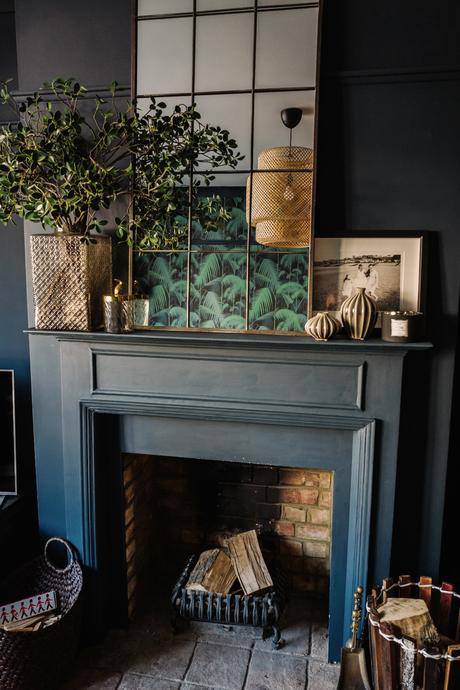
“Whenever you’re planning to make changes to a room I always start by revisiting the layout to see if any improvements can be made. What are your main objectives with this space? How do you want this space to work? Is it currently working for you? If not, why not? It’s often not just because you’ve gone off the sofa or the wallpaper. It may be because the room just isn’t making total sense for you. A simple repositioning of furnishings can often transform a room without so much as even picking up a paint brush! Whenever I visit a client for an initial consultation, I’m often prone to moving bits around just to see if I can improve on the current layout and they are often amazed at the difference this can make.
You need to confirm layout first because this is your starting point and guide to what you will need in the design whether that be for a kitchen, living room, bathroom or bedroom. Sometimes people are so caught up with their ‘dream saved images’ and how they want the end design to look like, that they can sometimes forget this first basic stage.
Also, don’t forget to consider any items that may need to be incorporated into the new design. Not many people start a new room scheme without having to consider at least a few items that will need to be incorporated into the design. Once you’re satisfied with the design layout of your new room scheme you can then start to focus on the actual design concept and how you want it to look. Consider and revisit your budget regularly. Look at the key design items you will need to source for in the new room. Flooring, wall coverings, furniture, lighting, accessories….. Build up the initial backdrop for the room giving focus to key decisions such as flooring and wall coverings and then build on the design with other items using this as your base layer. One will often impact on the other so the trick is to try and pull the ideas together whilst also visualising the overall end concept.”
Fiona Duke of Fiona Duke Interiors and co-founder of the Interior Design Collective
Follow your heart and not the latest trend!
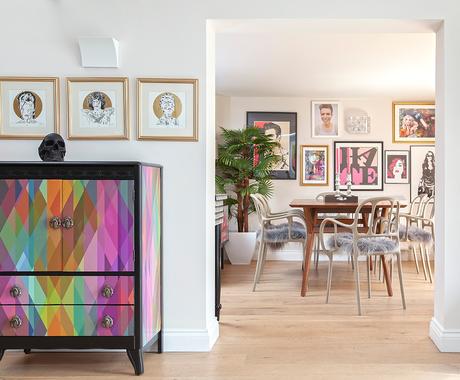
“Gather images (Pinterest is great) of rooms you like- these don’t need to be all bedrooms just because you may be redesigning your bedroom. It’s more about the feel and the mood you are looking to find.
Once you have lots of images, you will hopefully see a common theme running through them. You can then begin to edit these (maybe adding a few more specific images). Gradually you will have a clear idea of what the room should look and feel like.
It’s important to think about how the flow of the space will work at this stage too, so drawing a simple plan so that you can look at furniture layouts can also help. SketchUp is a great tool for this. By drawing in scale you will be forced to think about the real size of furniture rather than guessing. I often see early sketches with teeny tiny corner sofas for instance that really won’t fit in reality!”
Kate Lovejoy, owner of Kate Lovejoy Interiors
Plan, plan, then plan some more!
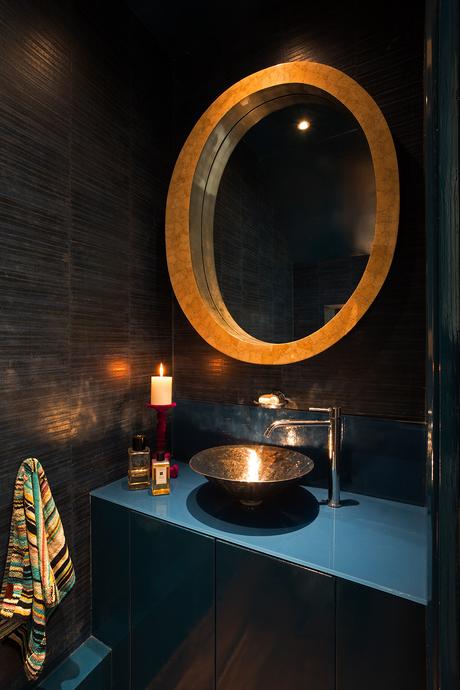
“Getting the planning, room layouts, ideas for paint schedules, flooring and any bespoke furniture is key. This helps to visualise the whole project and helps to eradicate lengthy building delays once your project starts.
Get the lighting right: Lighting is absolutely key to all design schemes. The worst thing a homeowner can do is to just have one type of lighting in a room and to have overly bright spotlights and place these in a row. Position downlights according to what you are actually lighting.
Include something unexpected: Not everything in a scheme should be too ‘matchy matchy’. Try to mix and match textures, such as wool, velvet, linen and leather, and also new pieces with some vintage finds. It adds depth, cosiness and luxury, particularly in lounges and bedrooms
Use colour: Don’t be afraid to use color and bright color. It can lift a room to another level.
Go Dark: Try painting a room in a dark color. It adds instant warmth, depth and glamour and you will find that anything put against a dark wall instantly pings! Even if you paint your woodwork darker than your wall (instead of the ubiquitous white gloss) you have an instant contemporary update. Paint is one of the cheapest, quickest and easiest ways to update and scheme.”
Emma Green, Founder of Emma Green Design
How do you want the room to feel?
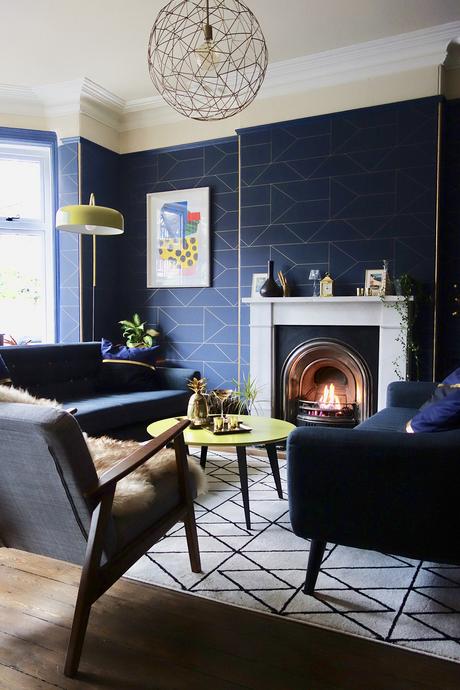
“The first thing I secure on any project is layout. It’s impossible for me to make product suggestions without nailing that first. The layout determines where the room’s focus will be, it confirms how we use a room (are the sofas facing the TV or each other?) and how to balance out a space. Alongside layout, it’s feel. How do you want the room to feel when you’re in there. Relaxed? Stimulated? Formal….?
More often than not when working on a new room design, there will be a piece of furniture, lighting or artwork that will remain, so I often use existing pieces as stimulus for the rest of the space.”
Karen Knox – Interior Designer at Making Spaces and co-founder of the Interior Design Collective
Give your room a personality
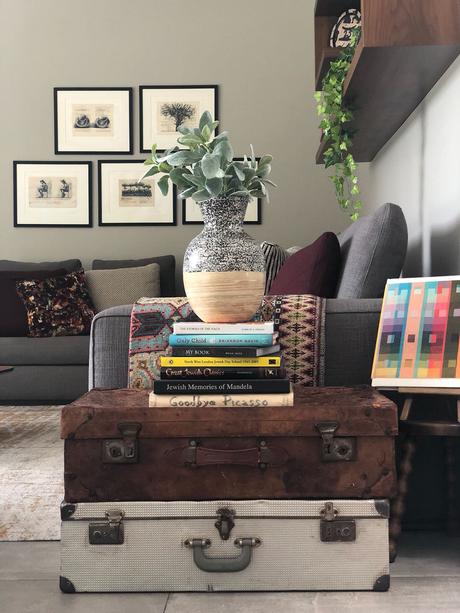
“Our starting place for a room scheme – which not only do we do ourselves when styling – but is also our first golden tip from our workshops is: “Give your room a personality”.
This helps you shape your design and color scheme. Our clients love this tip as they often feel overwhelmed when shopping for pieces and accessories but this helps them focus on what they should buy and what actually works.
Giving your room a personality can be a style you love or a mood you’re trying to create. We advise to keep it simple and use no more than four words.
For example, this is the home of a South African family, with a fabulous antiques collection, in a new build property. We called the scheme: “modern, vintage, world traveller”.
Once you know what look you want to achieve, layout is key to all other decisions. If you’ve established where the sofa and TV are going and what size pieces fit the room best you can then work out exactly how the room flows and where extra low lighting is needed for example.
Ask yourself key questions about the space – what is it currently used for? By whom? When? What would you like it to be used for? How long are you staying in property?
Which are some of the questions we ask our own clients. To ensure the design is flexible and future-proofed.”
Julia Alexander and Tamara Broido, founders of Alex and Bro.
Lots of top tips there to start your creative juices flowing and enable you to take charge of your interior space. So the main thing to take heed of here is the importance of getting the layout right from the start. Sounds obvious really but I think it’s something we all forget at times in our dizzy rush to choose colours, fabrics, and that must have side table or lamp that started off the whole idea in the first place. No matter how wonderful a room looks, if it doesn’t work for you in terms of the space and your lifestyle then you will take no pleasure from it, and always be dissatisfied.
Inspired? Who could fail to be with all those fabulous images to drool over as well as the interior design advice of the experts? Good luck and, as always, we would love to see the results of your amazing interiors.
Jacqui x

